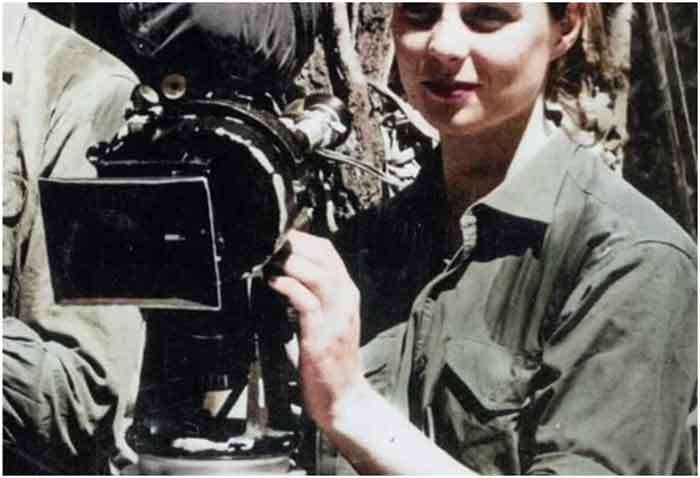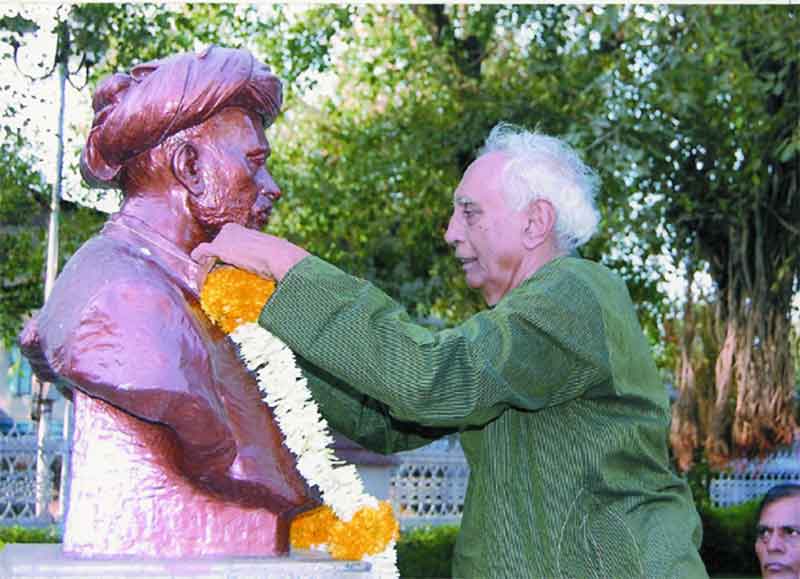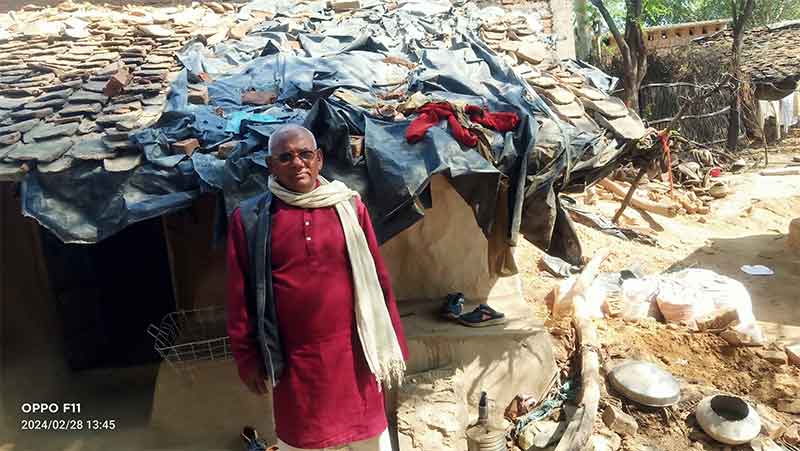
Monika Ertl was renowned for avenging the murder of Che Guevera. She was given the tag “the avenger of Che Guevara” for her efforts, a name that would create a sensation all around the world.
Till the last drop of her blood Monika Ertl embarked on road to avenging injustice and emancipating humanity from oppression. Her relentless spirit is an inspiration today for revolutionary activists confronting tyranny, determined to achieve justice at all costs against any odds. The transformation in her life and martyrdom was a manifestation of forces of oppression and liberation. This year, on May 12th , we commemorated 50 years since her martyrdom.
Factors that turned the course or radicalized her life could take a book itself, when one considers the background of where she originated. It manifested the spiritual metamorphosis that turns someone into a revolutionary. She was testimony of the Marxist concept of the superiority of influence of environment over heredity, with the phenomenal transformation she underwent. She symbolised how adverse circumstances invoked spirit for a lotus to bloom in rebellion and how Che Guevera was morally not dead and buried.
We need to resurrect the spirit of Monica Ertl today, even if times were very different from 50 years ago. Methods may differ but oppression has scaled heights unpenetrated with ascendancy of globalisation .She symbolised how adverse circumstances invoked spirit for a lotus to bloom in rebellion and how Che Guevera was morally not dead and buried. Monica’s death planted seeds for new roses to bloom to cut of the tumours of injustice.
The book, Surazo: Monika and Hans Ertl, a German story in Bolivia by Karin Harrasser gives a most lucid and penetrative coverage of her life.
On October 9th, 1967, Bolivian army officer Colonel Roberto Quintanilla Pereira ordered the execution of Che Guevara and cut off his hands.
After the US-backed Bolivian army killed Guevara in La Higuera, Monika joined the National Liberation Army of Bolivia (ELN).
In 1971, she returned to Hamburg where Che’s killer Roberto Quintanilla Pereira was appointed as a Bolivian consul harbouring fears that the ELN could target him for his involvement in Che’s death. There on April 1st, 1969, she personally assassinated Quintanilla three times and was able to flee, thus avenging the great revolutionary commander.
Monika Ertl was shot dead on May 12, 1973 in La Paz in the course of firelight on the open street. She was s in her thirties and was battling to revive the Ejército de Liberación Nacional, or ELN, which has been considerably demoralized since Che Guevara’s assassination.
Behind these two executions was a man named Altmann, whom Monika affectionately called “Uncle Klaus” when he was a child and who was convicted on July 4, 1987 by a jury in France as the “Butcher of Lyon”.
Background
Monika Ertl was born in Munich, in 1937, on August 17th .After World War 2 her father immigrated to Bolivia, where he continued to film for some time and became a farmer.
Her father, Hans, was a Nazi propagandist who fled to Bolivia. The family’s close friends included their Nazi fugitives such as Klaus Barbie, a Gestapo leader known as “the Butcher of Lyon.”
She held her father’s ideology in complete disdain and began to establish a deeper bond to the socialist cause, admiring the Cuban Revolution and especially the Argentinian commander Che Guevara
Monika’s mother’s name was Aurelia. Her father’s name was Hans. At the age of 31, he was served as a war correspondent for Nazi Germany.
Later he performed task of the personal cameraman of Field Marshal Erwin Rommel. The defeat of German fascism, like many other Nazis, provoked him to take refuge in South America.
The Ertl family, Hans, Aurelia, Monika and their two sisters finally emigrated in 1952. They settled on a small farm in Bolivia called “La Dolorida.” Monika was a mere 16 years old then.
While Bolivian culture was alien to her, there was also a large community of wealthy Germans close to her, including her father’s friend and war criminal Klaus Barbie.
She was her father’s most loved daughter and joined him on various filming expeditions. There she gained invaluable experience in trodding in rural areas and also acquired art to handle firearms. Monika married a Bolivian-German mining engineer.
How Monica was radicalised
She demonstrated what kind of character it took to make such a radical decision and the nature of experience and situation you have to be in to make a 180-degree turn in your life. She grasped the dimensions of how deeply society needs to be revolutionized, and therefore how deeply you need to change yourself.
Her marriage inflicted high pain on her.. Even if she lived up to the function of justifying that role model by doing everything that was expected of her, it instigated high agony within her.
She was harassed and bossed around by her sexist and racist husband, who never ceased to compare her with her mother, which she deeply resented.
That sowed the seeds for her bid to question society and class extensively. She realized it was an illusion for this to be the life of freedom she dreamed of.
A major factor in influencing her awareness of class struggle was certainly the fact that she lived with her husband very close to the copper mine he owned. Her experiences in northern Chile, where her husband worked in the copper mines, seem to have greatly shaped Monika’s radicalization. There she witnessed not only the grave conditions of the miners and their families, but also the ascendancy of the powerful copper miners’ union. Here she was a first hand witness to the exorbitant difference between the lifestyle of the ordinary workers, the conditions under which inhabited , to the extravagant manner he herself lived as a European lady in a well-protected, rich house. It was the time and place of Salvador Allende’s rise to power, who, after his election in 1970, once again promoted the nationalization of the copper industry as an important signal.
In 1969, after 11 years of marriage, she divorced her husband, disabled all her ties with the upper class, and gained first political baptism coming in contact with regional members of the Bolivian National Liberation Army created by Che himself in 1966. She bid farewell to her paternal home to disperse illegally. She acquired the nickname “Imila the Indiana”. She soon gained a reputation of being fearless to the core by fellow companions.
She met and fell in love with Guido Alvaro Peredo Leite, known by the pseudonym “Indy”, a member of the Bolivian Communist Party who participated in the group that organised Guevara’s arrival in the country.
She demonstrated what kind of character it took to make such a radical decision and the nature of experience and situation you have to be in to make a 180-degree turn in your life. She grasped the dimensions of how deeply society needs to be revolutionized, and therefore how deeply you need to change yourself internally.
It was incredible the manner she extricated from the oppressive colonial culture and manner she gained insight into her own racist thoughts and behaviours.
The need to venture into politics, integrate with the affairs of ordinary people, to understand their problems, also originated from her father’s influence.. Her German origin virtually made her feel ashamed.
Her father’s active endorsement of the fascist regime inspired her to create a completely new world.
Avenging murder of Che
Monica mourned Che Guevera’s death but was bent on avenging one person. This was Roberto Quintanilla Pereira, the culprit of both the execution of Che and that of her lover Indy. The thirst for revenge was her ultimate goal.
The Bolivian regime, in order to protect Quintanilla from the guerrillas, appointed him Bolivian consul general in Hamburg, Germany.
Monika learnt this and smelt an opportunity to trigger his execution.
She returned to Germany on the first of April 1971, disguised in her good clothes, high heels, combed hair, dyes it and arrived to the consular office. She knocked on the door and steppe into Roberto Quintanilla Pereira’s office.
She introduced herself in being interested in venturing in visiting Bolivia for a documentary, narrating her experiences with her father after the war, after they immigrated.
The consul, impressed by her beauty, promised to assist her her and welcomed her to accompany him for a drink. He also gave her his card. She smiled and fearlessly pulled out a colt cobra 38 special pistol out of her bag, spurting three bullets, in his chest.
Moments later, the Bolivian consul general fell dead; with bullets splattered all over him in his office Monica fled and left her “signature” next to him. The gun, a blonde woman’s wig and a note that read “Victoria o muerte” (victory or death), was left behind.
Murder of Monica Ertl
After a spate of adventures, Monica made her way back to Bolivia where she has learned. Nazi Klaus Barbie had taken refuge. However, with $ 20.000 placed on her head, every move she undertook bore risk of arrest.
Nevertheless, she was determined to execute Klaus Barbie, known as “Uncle Klaus”. The “butcher of Lyon”,
Monika Ertl, with Reese Debre, a close associate and friend tracked Klaus Barbie day and night, with the help of their other “companions”. When the right opportunity came across, they planned to kidnap him.
Someone from their group sadly betrayed them. “Uncle Klaus” had people stationed everywhere. For his patronage of the extermination of the guerrillas, he was honoured by the regime with the rank of intelligence captain and was a trusted adviser to the Bolivian dictator.
On May 12, 1973, Monika, like Che, was trapped into an ambush and was executed. Her body was buried in an unknown place so that her memories would forever be extinguished. Ironically, that was not to be.
Harsh Thakor is a freelance journalist who has extensively researched on Liberation movements Thanks inputs from High Asia Herald, Famagusta News and Time News















































